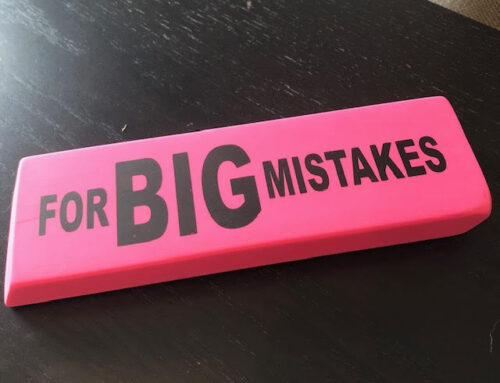Busy people will often tell me they could easily spend their entire day (or week) doing email. Or following up on requests. Or completing other disparate tasks.
We all have a myriad of tasks that are important – but not directly tied to our core priorities. I call these your supporting tasks. Supporting tasks and personal tasks all represent work that needs to get done — but doesn’t align to your core priorities.
We offer support to our colleagues. We attend project meetings. We network. We volunteer in the community. And our cats won’t book their own vet appointments.
The challenge is when we take on too many of these tasks, we’re left with a yucky aftertaste. If they’re quick, we’re inclined to think, look how productive we are! But they soon leave us with a stomachache when we realize how little progress we’ve made on our core priorities.
So, what is the solution? How do we manage our supporting tasks without having them consume all our time? I recommend the 3D Approach.
- Dedicate time
We all need to spend at least part of our day attending to supporting tasks. But we don’t want these tasks to overtake the time we spend on our core priorities.
I recommend you pay yourself first by blocking time for your core priorities before supporting tasks fill your day. This strategy is akin to filling up on vegetables before the dessert tray comes around. Then, you can process your supporting tasks in the pockets of time between focused work. Focused work is when you spend time on your core priorities. Decide upfront how much time you want to dedicate to core priorities versus supporting tasks. And while your supporting tasks will always demand more of your time, you are best served by creating clear boundaries around the time you need to dedicate to them. The exact amount of time you should spend on your supporting tasks will vary according to your role.
- Do it now
When you encounter a supporting task, it’s ideal to process it right away. Avoid adding it to a pile for later or marking an email as unread. If it’s a quick task, commit to touching (working) on that task one time. Otherwise, you’ll inevitably need to repeat some form of action, such as reading that email once again. This might seem inconsequential in the moment. But this redundancy can easily add up to hundreds of hours a year – time you could spend on a more fulfilling activity. You can certainly scan for urgency, but if you touch a supporting task, commit to completing it now.
Of course, this strategy must be paired with the ‘Dedicate time’ strategy. For example, only look at email during times you’ve dedicated to processing email. Otherwise, your supporting tasks will overtake your core priorities.
- Defer as appropriate
Admittedly, not all supporting tasks require short bursts of action. Some of these tasks require you to roll up your sleeves and dig into it. Some tasks will require time you don’t have right now. So, you need to defer action.
The key to deferring tasks is not to pile them or flag them or leave them in your inbox. Otherwise, they tend to sit and accumulate dust over time. Instead, list them in one central place: your Main Action Plan (MAP). This is your primary to-do list. You can read more about it how to use it here and in my latest book, Workday Warrior: A proven path to reclaiming your time. Parking any supporting tasks on your MAP gives you space to focus on what matters most: your core priorities.
Sure, it might be tempting to complete all your supporting tasks now. And if you had infinite time, I’d agree with this strategy. But days race by and we want to protect our fleeting time for our priorities. Our supporting tasks, while important, are still simply supporting other more important work.
Dedicate time; Do it now; Defer as appropriate – this 3D Approach is the optimal way to balance your time between core and supporting tasks. Give this a try. I’ll be cheering you on from the other side of the screen.
(This was originally published on The Productive Writer and has been adapted, with permission, for publication here).







Leave A Comment